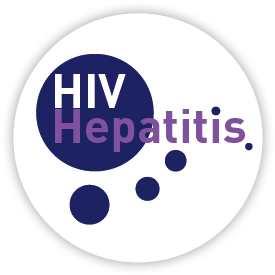Modelling data might support use of low dose 400 mg efavirenz in pregnancy
1 August 2016. Related: Conference reports, Pregnancy, PK Workshop 17th 2016 Durban.
Simulated exposure following 400 mg efavirenz once daily during third trimester of pregnancy, indicates that the lower dose might be adequate in this population, according to data presented at the 17th International Workshop on Clinical Pharmacology of HIV & Hepatitis Therapy.
Efavirenz (EFV) 400 mg once daily is non-inferior to EFV 600 mg in adults and recommended by World Health Organisation as part of an alternative first-line regimen. [1] The pharmacokinetics (PK) of antiretrovirals can alter during pregnancy, leading to reduced drug exposure and the risk of virological failure and vertical transmission.
To date (and despite a lot of discussion) it remains unknown whether the 400 mg dose is adequate during pregnancy. And CYP2B6 polymorphisms influencing EFV clearance make this question a bit complicated.
Stein Schalkwijk from the PANNA Network, based at Radbould University Medical Centre, Nijmegen, alongside investigators from The Netherlands, South Africa, Thailand and the US IMPAACT 1026s group developed a physiologically-based population PK model to describe the PK of EFV in HIV positive pregnant and non-pregnant women. [2] They included published data, pooled from nine EFV pregnancy PK studies, and used the model to simulate EFV exposure following 400 mg EFV QD during third trimester of pregnancy.
Data from 249 women (1697 samples) were included in the model. Median non-pregnant weight was 59 kg (IQR 52-68). Median gestational age 35 (range 25-39) weeks. Among 41 (16%) women with genotype available: eight were categorised as slow metabolisers; 22 intermediate; and 11 fast metabolisers.
After controlling for pregnancy-induced changes in protein-binding and plasma liver flow, the investigators found that pregnancy had no effect on intrinsic clearance.
For 400 mg, the simulated median C12 in pregnancy were: 3.22 (IQR 2.23-4.57), 1.26 (IQR 0.92-1.75), and 0.82 (IQR 0.58-1.20) mg/L for slow, intermediate and fast metabolisers, respectively, compared to 4.37 (IQR 3.17-6.07), 1.74 (IQR 1.24 -2.32), and 1.17 (0.84-1.64) mg/L for non-pregnant women.
In slow, intermediate and fast metabolising pregnant women 1%, 30% and 61% had C12 below 1.0 mg/L, respectively, compared to 1%, 14%, and 38% in non-pregnant women.
The investigators reported that the frequencies of C12 below 0.7 mg/L were: 38% in pregnancy and 15% for non-pregnant fast metabolising women. But despite this increase in below target fast metabolising pregnant women, the predicted unbound concentrations were unchanged by pregnancy. Simulated EFV unbound concentrations showed 18% of C12 in fast metabolising pregnant women below the protein-binding-adjusted threshold of 0.7 mg/L, compared with 15% in non-pregnant women.
The investigators concluded that although pregnancy decreases total EFV C12, EFV unbound is predicted to be unchanged. Although this finding needs confirmation in human studies, it suggests that a dose reduction to 400 mg might be feasible.
Comment
A PK study of EFV 400 mg in pregnant women is underway at the St Stephen’s Centre, Chelsea and Westminster Hospital, London. [3]
This study is recruiting women who are stable on EFV 600 mg once daily for more than 12 weeks and willing to take EFV 400 mg once daily at gestational age of 28 weeks (plus or minus three weeks).
The study should finally provide the evidence to guide global recommendations for this optimised EFV dose in pregnant women.
References:
- WHO. Consolidated guidelines on the use of antiretroviral drugs for treating and preventing HIV infection. Recommendations for a public health approach. Second edition. June 2016.
http://www.who.int/hiv/pub/arv/arv-2016/en/ - Schalkwjik S et al. Is pregnancy a barrier to the proposed lower dose of efavirenz? 17th International Workshop on Clinical Pharmacology of HIV & Hepatitis Therapy. 8-10 June 2016, Washington DC, USA. Poster abstract P_26.
- US National Institutes of Health. SSAT063- Pharmacokinetics of efavirenz 400 mg once daily during pregnancy in HIV-1 infected women.
https://clinicaltrials.gov/ct2/show/NCT02499874


